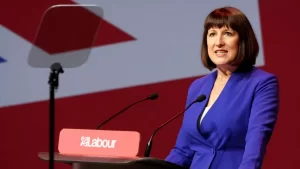If the Labour Party are to follow through with the tax proposals in their General Election manifesto, Rachel Reeves has already been backed into a corner.
That is the opinion of Nimesh Shah, CEO of tax and business advisory firm, Blick Rothenberg, said: “The manifesto promises not to increase Income Tax, National Insurance, VAT or Corporate Tax, which account for over 80% of the total £850bn tax take in the UK, leaving few meaningful tax levers to pull for the new Chancellor. Instead, the manifesto pledges to generate limited additional tax revenue from closing carried interest ‘loopholes’, abolishing the non-dom regime ‘once and for all’ and applying VAT on private school fees; as well as reducing the tax gap through tackling tax avoidance with additional funding made available for HMRC.”
He added: “The Labour Party’s historic landslide victory at the General Election 2024 welcomes Rachel Reeves as the UK’s first female Chancellor – and under the backdrop of the highest tax burden in 70 years, Reeves and her new Prime Minister, Sir Keir Starmer, will need to get straight to work to find the money for their manifesto promises and tackle the challenge of the rising national debt.”
Nimesh said: “The new Labour Government needs to find more money, and it will need to do it quickly if it is going to deliver on Sir Keir Starmer’s promise of ‘Change.’ The tax raising proposals in the manifesto are unlikely to raise more than 2% of the total current UK tax take; and with the requirement to have the national debt falling as a percentage of GDP, something will have to give.
“Well-respected economic think tanks, such as the Institute of Fiscal Studies, believe that taxes will have to increase – and Reeves faces an immediate dilemma on how she will find the money within her self-imposed fiscal constraints.”
He added: “History would suggest that there must be some bad news in the first Budget after the General Election – private equity executives, non-doms and parents with children in private schools already know what’s coming; but higher earners, savers and pensioners will be watching carefully. Labour have been worryingly vague around whether they will increase capital gains tax rates and have stayed completely silent on changes to pensions – both for those benefitting from tax relief on pension contributions and retirees drawing a pension income. Investors will also be paying close attention to the first Reeves Budget, with strong rumours that dividend tax rates could be aligned to income tax, and there could be an extension to National Insurance applying to landlords. We can all be confident that personal tax allowances and thresholds will remain frozen for as long as possible, as this stealth tax measure is an attractive ‘cash cow’ for any Government – a legacy of Rishi Sunak’s time as Chancellor.”
Nimesh said: “Whilst there is a perceived urgency to balance the country’s finances, the substantial Labour majority means that they have been handed a long-term mandate, which presents a real opportunity for tax reform and simplification. Rachel Reeves is a well-respected economist, and a photograph of Gordon Brown took pride of place in her college room at Oxford University – she has all the hallmarks to be the tax reforming Chancellor that the country has been desperately seeking for the last 20 years. Reeves can take her time and set a long-term tax strategy which should link to immigration, investment, and international trade policies.”
He added: “Do we know much more about Labour’s plans on the day after the General Election? Not really. Reeves and Starmer have the summer to enjoy their victory – and the true direction of how the new Labour Chancellor wants to shape tax policy will only truly be known at the first Budget, likely to be held September.”
Read more:
Rachel Reeves has already been backed into a corner

